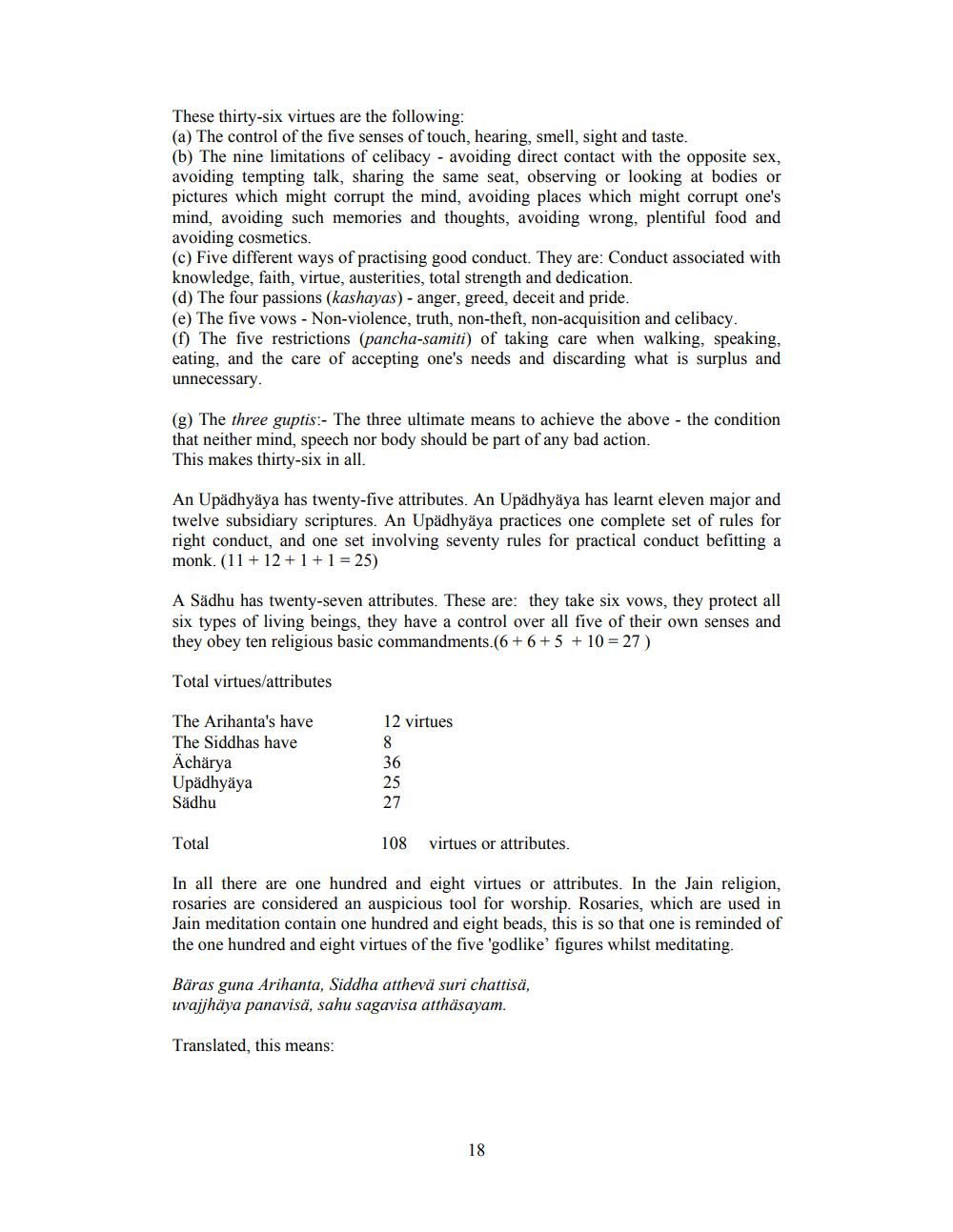________________
These thirty-six virtues are the following:
(a) The control of the five senses of touch, hearing, smell, sight and taste.
(b) The nine limitations of celibacy - avoiding direct contact with the opposite sex, avoiding tempting talk, sharing the same seat, observing or looking at bodies or pictures which might corrupt the mind, avoiding places which might corrupt one's mind, avoiding such memories and thoughts, avoiding wrong, plentiful food and avoiding cosmetics.
(c) Five different ways of practising good conduct. They are: Conduct associated with knowledge, faith, virtue, austerities, total strength and dedication.
(d) The four passions (kashayas) - anger, greed, deceit and pride.
(e) The five vows - Non-violence, truth, non-theft, non-acquisition and celibacy. (f) The five restrictions (pancha-samiti) of taking care when walking, speaking. eating, and the care of accepting one's needs and discarding what is surplus and unnecessary.
(g) The three guptis:- The three ultimate means to achieve the above the condition that neither mind, speech nor body should be part of any bad action. This makes thirty-six in all.
An Upadhyaya has twenty-five attributes. An Upadhyaya has learnt eleven major and twelve subsidiary scriptures. An Upadhyaya practices one complete set of rules for right conduct, and one set involving seventy rules for practical conduct befitting at monk. (11 + 12 + 1+1=25)
A Sadhu has twenty-seven attributes. These are: they take six vows, they protect all six types of living beings, they have a control over all five of their own senses and they obey ten religious basic commandments. (6+6+5 +10=27)
Total virtues/attributes
The Arihanta's have The Siddhas have Acharya
Upadhyaya Sädhu
12 virtues
8
36
Total
25
27
108 virtues or attributes.
In all there are one hundred and eight virtues or attributes. In the Jain religion, rosaries are considered an auspicious tool for worship. Rosaries, which are used in Jain meditation contain one hundred and eight beads, this is so that one is reminded of the one hundred and eight virtues of the five 'godlike' figures whilst meditating.
Bäras guna Arihanta, Siddha atthevä suri chattisä, uvajjhaya panavisā, sahu sagavisa atthāsayam.
Translated, this means:
18




